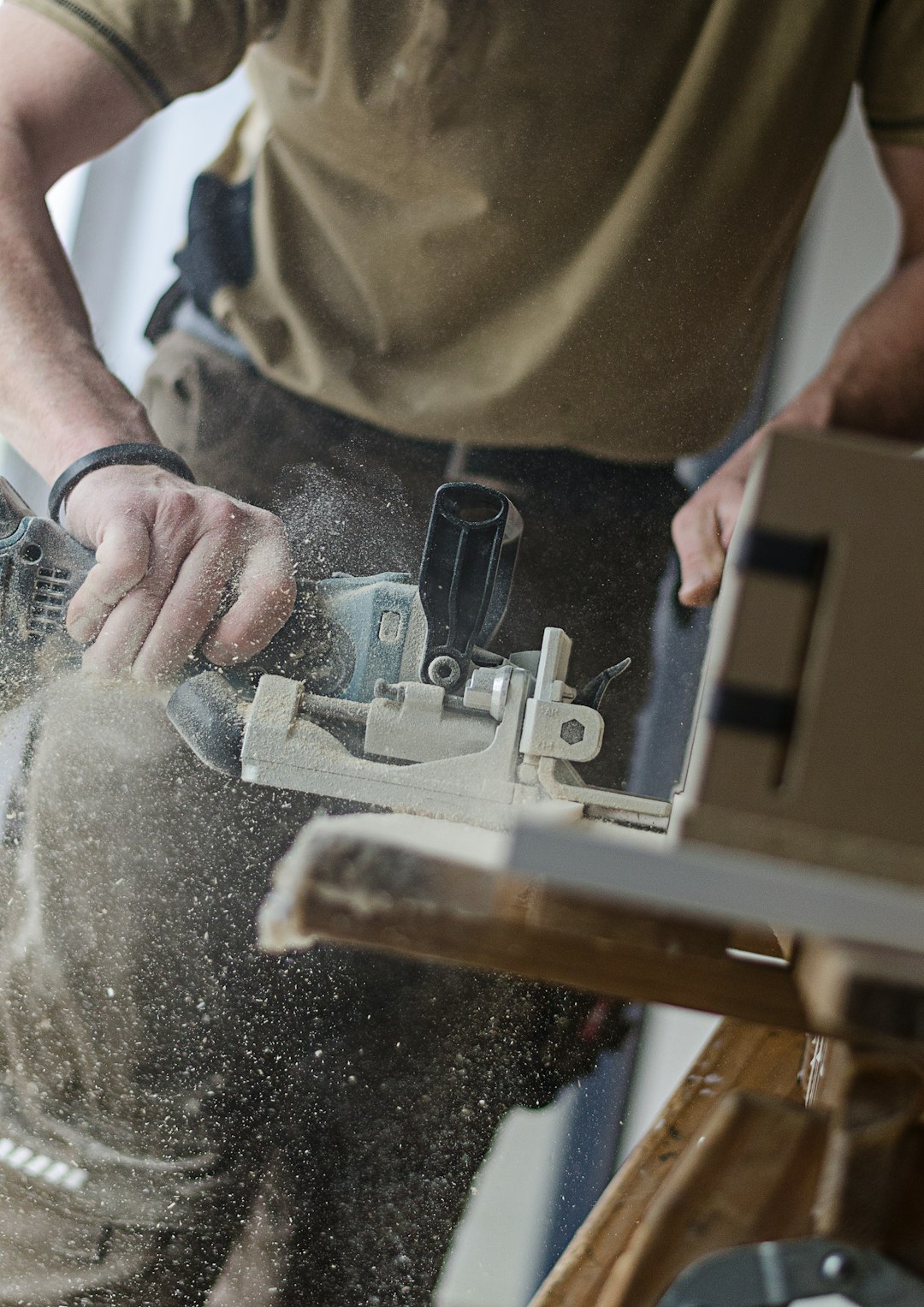Joiner Kaihanga Taonga ā-Whare
Joiners use timber and board products to make fittings such as cabinets, doors, window frames and stairs.
Joiners may do some or all of the following:
- discuss clients' requirements and provide quotes
- draw diagrams and plans for clients
- measure, cut, assemble, sand and finish materials (usually timber) to make items such as cabinets, doors, window frames and stairs
- fit finished products in clients' homes or businesses
- run their own business.
Physical Requirements
Joiners need to have steady hands and good hand-eye co-ordination. They need to be reasonably fit and strong, as there may be some heavy lifting required.
Useful Experience
Useful experience for joiners includes:
- draughting
- carpentry or other building work
- interpreting or creating technical plans.
Personal Qualities
Joiners need to be:
- alert and safety-conscious when using tools and machinery
- accurate, with an eye for detail
- able to visualise a finished product
- able to follow instructions
- good at problem solving
- flexible and adaptable
- good at time management.
Skills
Joiners need to have:
- woodworking and machinery skills
- knowledge of how different timbers respond to being cut, glued, filed and sanded
- the ability to read plans and understand technical drawings
- knowledge of health and safety procedures and first aid
- skill in caring for joinery equipment
- basic maths skills.
Computer skills are helpful to calculate specifications and costs, or create designs. Business skills are useful for joiners who run their own business.
Some employers also prefer you to have a full driver's licence.
Conditions
Joiners:
- usually work regular hours, but may have to work longer hours to meet deadlines
- work in small joinery workshops or large furniture and fittings factories where conditions can be noisy and dusty
- may travel to homes or construction sites to take measurements or install finished products.
Subject Recommendations
No specific secondary education is required for this job, but maths, English, digital and visual communication, and construction and mechanical technologies to at least NCEA Level 2 are useful.
Year 11 and 12 learners can find out more about the construction industry, and gain relevant skills, by doing a National Certificate in Building, Construction and Allied Trades (Level 1 and 2) through the BConstructive programme.
For Year 11 to 13 learners, trades academies and the STAR and Gateway programmes are good ways to gain relevant experience and skills.
These programmes may help you gain an apprenticeship, but do not reduce the amount of time it takes to complete it.
Related Courses
Joiners can earn around $23-$25 per hour.
Chances of getting a job as a Joiner are good due to a shortage of people interested in this type of work.
Pay for joiners varies depending on skills and experience.
- Joinery apprentices may start on the training minimum wage or minimum wage, with their pay increasing as they gain skills and qualifications.
- Joiners usually earn $30 to $35 an hour.
- Experienced or qualified joiners can earn $40 an hour or more.
Those running their own business may earn more than this, but their income depends on the success of the business.
Source: careers.govt.nz research, 2023; Seek, 2023; and Trade Me, 2023
Joiners may progress to set up their own joinery business, or move into boat building or cabinet making roles.
Joiners may specialise in a particular type of joinery such as doors, window frames or stairs.
Years Of Training
3-4 years of training usually required.There are no specific requirements to become a joiner. However, many employers prefer to hire joiners who have or are working towards a qualification.
To become a qualified joiner you need to complete an apprenticeship and gain a New Zealand Certificate in Joinery (Level 3 or 4). The Building and Construction Industry Training Organisation (BCITO) oversees joinery apprenticeships.

 Nelson College For Girls
Nelson College For Girls